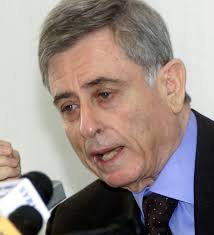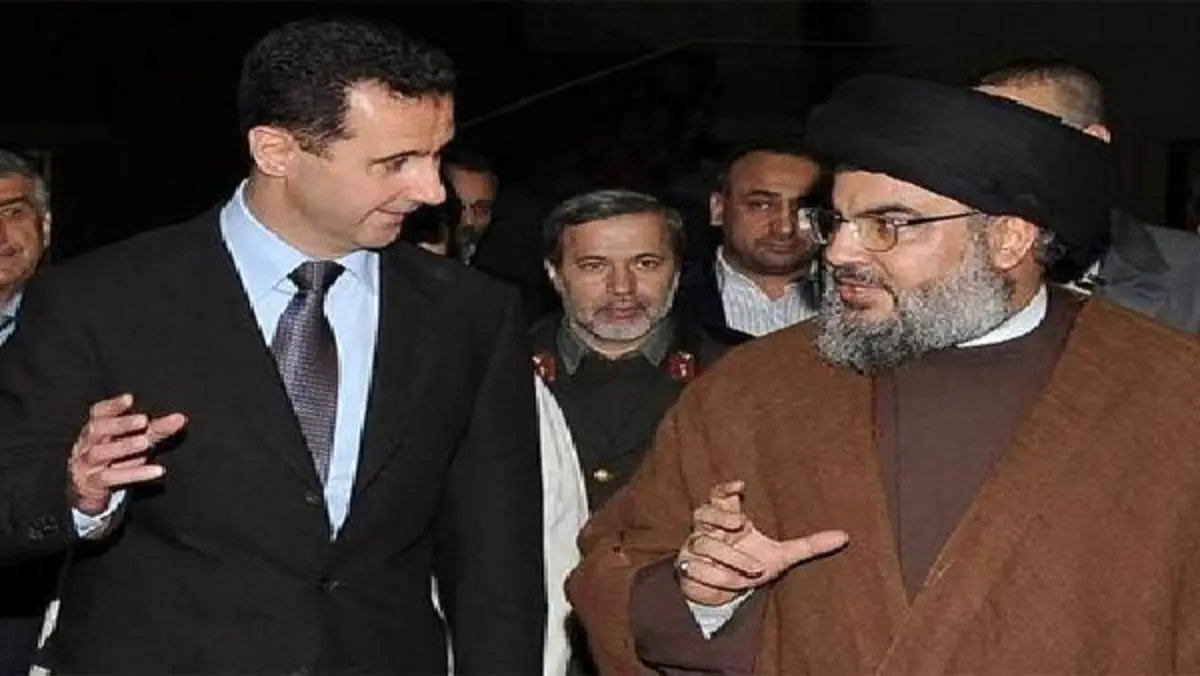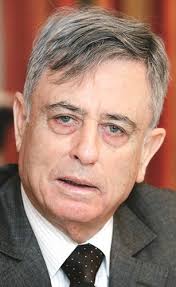Ladies and gentlemen
At the beginning of my speech, I would like to express gratitude to the ladies and gentlemen who have worked diligently to organize this meeting and provide an opportunity for the Syrian Democratic National Opposition to address the inhumane and dire conditions faced by the Syrian people. They have endured the burden of tyranny, injustice, and the systematic plundering of national resources by the ruling family for almost four decades. Allow me to share with you the perspectives and aspirations of the opposition in terms of democracy and Syria, as well as its vision for the process of democratic change to establish the rule of law, social justice, and strengthen the democratic project across all modern state institutions (executive, legislative, judiciary, and media).
For four decades, the Syrian people have been living under the oppressive rule of a totalitarian regime that seized power through armed force. This regime has exerted dominance over society without deriving its legitimacy from the people. It has monopolized political power, disrupted constitutional institutions, suppressed intellectual and political life, curtailed public and individual freedoms, and resorted to acts of violence, forced displacement, and mass imprisonment, affecting hundreds of thousands of Syrians. Moreover, it has deprived many of our people of their civil, political, and citizenship rights.
The illegal Assadist regime has transformed Syria into a vast prison, where hundreds of thousands of individuals from various political and intellectual backgrounds demand freedom and democracy. Merely advocating for the basic human rights of Syrian citizens has led to prolonged imprisonment for individuals like Fidaa Al-Hourani, Michel Kilo, Riad Seif, and others in recent times.
The regime’s use of repression, violence, and the targeting of individuals has effectively marginalized the Syrian people, preventing them from participating meaningfully in political life. Consequently, Syria has lagged behind for decades due to the authoritarianism, oppression, and systematic looting that form the foundation of the totalitarian regime.
These pillars of the regime directly oppose societal progress, historical momentum, and the advancement of human civilization. Authoritarianism suppresses the role of the individual in society, hindering their creative abilities and potential for productive contributions. As a result, individuals are unable to fulfill their natural role in society’s development and fail to make effective contributions to human civilization.
Under the tyrannical rule of the Asadi Authority, citizens become prisoners of despotism, as expressed by Syrian thinker Abdulrahman Al-Kawakibi in his book “The Nature of Tyranny.” The individual becomes inactive, corrupted, lost, and confused, lacking direction and purpose in how they spend their hours and time.
As a consequence of the Asadi Authority’s tyranny, Syrian society has been marginalized, detached from the broader currents of history and human civilization.
The ruling authority persistently pursues an irresponsible and deliberate policy that aims to undermine national unity and fragment Syrian society along sectarian and ethnic lines. This poses a significant threat to the future of both the Syrian people and the nation itself.
The Asadi family’s bullying and repression have reached unprecedented levels in recent times. Public discontent has become evident in various parts of the country. Recent events in cities like Qamishli, Deir al-Zour, Zabadani, and others are mere indicators of a profound internal movement that will soon expand, leading to an eruption of popular anger. The people demand the ability to actively participate in shaping the future and determining their own destiny.
The Asadi Authority employs various methods to deepen the tragedy and suffering experienced by the Syrian people while eradicating their role in society and the state.
1 – These methods include the utilization of the emergency law, which grants the regime exceptional powers that infringe upon the rule of law. Consequently, the regime governs through repression and security services, leading Syria to regress as a country that was once a beacon of freedom and knowledge.
The excessive use of security services to suppress freedoms and arrest intellectuals, while neglecting their responsibilities to maintain citizen security, has resulted in an increase in various types of crimes previously uncommon in Syria. These include murder, robbery, theft, bribery, forgery, armed kidnapping, and banditry, which greatly concerns Syrian citizens.
2 – Despite the principles enshrined in the Constitution that guarantee fundamental rights for citizens, these principles have been suspended due to the implementation of the emergency law. Consequently, the Syrian people have been deprived of the freedom to form political parties, express their opinions, and own private media outlets to voice their ideas and aspirations. Additionally, their freedom of choice has been restricted as the People’s Assembly pre-approves candidates’ names, leading to Syrians’ reluctance to participate in elections due to the pervasive reality of fraud. As a result, the participation rate has not exceeded 10% of those registered on the electoral lists.
3 – State bodies and institutions are plagued by corruption, and deliberate economic policies have been adopted to impoverish the people, leading to deteriorating living conditions and a significant decrease in their purchasing power. The unprecedented increase in prices, estimated at over 70%, coupled with declining wages in both public and private sectors, has further exacerbated the situation. As a result, the ruling family and its associated mafia have been able to seize control of the country’s resources and possess over 95% of its wealth.
For instance, Rami Makhlouf, who happens to be Bashar Al-Assad’s cousin, has accumulated a fortune exceeding fifteen billion dollars in less than eight years. His annual profits from various institutions and economic activities, facilitated by the head of state, account for more than 30% of Syria’s national income. Naturally, these profits are primarily distributed among the ruling family.
4 – As part of the ruling family’s efforts to control wealth, they have bypassed laws, and the judiciary has transformed into one of the security agencies responsible for enforcing government directives and safeguarding the interests and instruments of the ruling family.
Furthermore, in addition to the internal policies that have caused immense suffering for the Syrian people, the regime has pursued practices in its foreign policy that have had detrimental effects on their lives, resulting in significant damages:
1 – The act of committing terrorist acts in Lebanon, Iraq, and other areas.
- The Syrian regime has established deep connections with Iran, becoming a part of its strategic apparatus in the region, including forming a corridor for its access to Lebanon and the Palestinian arena. It has further colluded with Iran to gain control over Iraq.
- In an attempt to overcome international isolation, the regime is seeking to engage in negotiations with Israel. However, it recognizes its lack of qualification to pursue these negotiations until the end due to the popular isolation it faces. Additionally, being a sectarian minority in Syrian society, it refuses to assume the responsibility of signing a peace agreement, similar to what his father, Hafez al-Assad, did. He continuously maneuvered without reaching a conclusive agreement until his death.
The question that arises is: Where will the continuation of this system lead in terms of governance?
- Regarding its internal policy, the regime has practiced isolation, exclusion, and discrimination, resulting in the isolation of the vast majority of the country’s population and their exclusion from key state institutions, including the army and security forces. This has led to the rise of sectarian tensions within the country, as well as the emergence of the Kurdish problem.
- The regime’s internal policy of monopolizing power, making decisions unilaterally, disregarding the role of the people, suppressing freedoms, and instilling fear through the actions of security services has become contributing factors to the growing frustration and despair among the citizens.
Encouraging and engaging with the ruling authoritarian regime in Syria, while remaining silent about its crimes, repression, and corruption, contribute to the growth of extremism in the country. The Syrian democratic opposition, comprising various political and intellectual forces (national, liberal, leftist, and Islamic), shares a common objective of achieving democratic and peaceful change and establishing a civil democratic state with the people as its foundation. We firmly believe that democracy is the remedy for the sufferings endured by the Syrian people. Democracy entails granting the people the freedom to choose their constitutional institutions and facilitating the peaceful transfer of power.
Thanks




